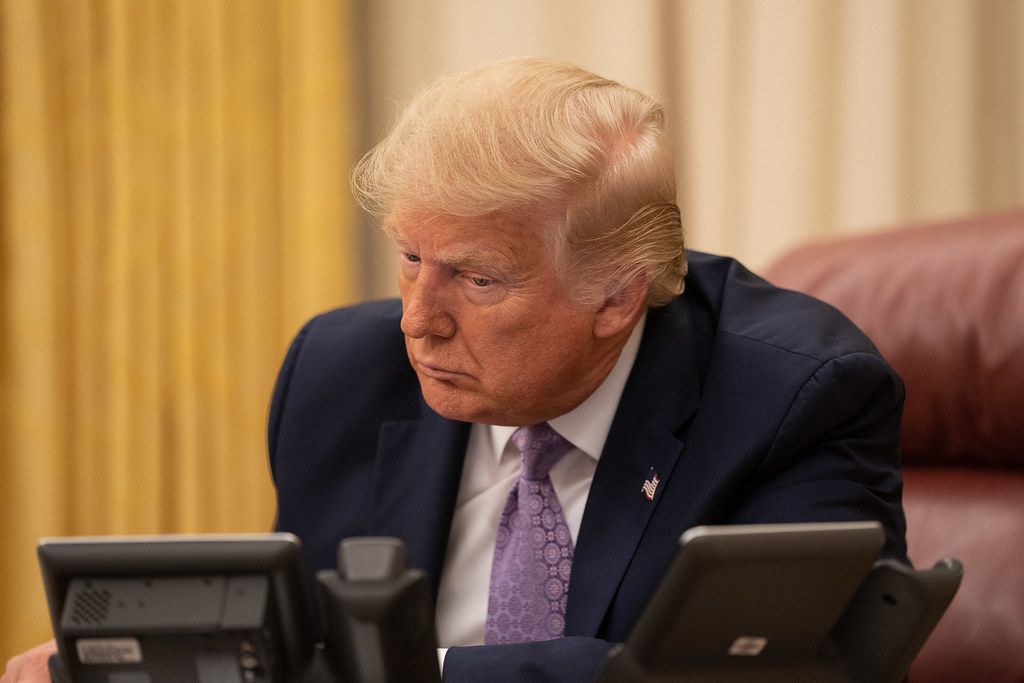Key Takeaways
• A Brown University lecturer warns that Trump’s language on healthcare echoes eugenics ideas.
• Experts note U.S. history in the 1920s fueled later Nazi policies.
• Current rules still require emergency care for all, regardless of status.
• Critics worry this rhetoric could lead to denying care and letting people die.
Donald Trump’s recent comments about denying healthcare to migrants have drawn sharp criticism. Dr. Craig Spencer, a historian at Brown University, compared the language to eugenics policies from nearly a century ago. He said the government’s talk on who deserves care sounds alarmingly similar to ideas once perfected in the U.S. and later adopted by Nazi Germany.
Why Experts See a Modern Eugenics Threat
Dr. Spencer explained that in the 1920s and 1930s, U.S. leaders pushed ideas about “improving” the population by limiting care for those seen as unfit. These beliefs later shaped Nazi policies. Today, he fears the same mindset is rising again. Moreover, he believes the administration’s claims about migrants mirror eugenics talk.
Understanding Eugenics and Its Legacy
Eugenics was a movement that claimed some people had better traits than others. Supporters pushed forced sterilizations and denied services to those they labeled inferior. In fact, more than 60,000 Americans were sterilized under state laws. Internationally, Nazis adopted these ideas to justify mass killings.
How Language Shapes Public Policy
Language matters because it sets the tone for policy. When leaders talk about who “deserves” healthcare, they imply others do not. Thus, Spencer argues that using terms like “illegal aliens” and linking them to crime sends a dangerous message. He believes this talk paves the way for policies that could let people die.
Trump’s Healthcare Claims on Migrants
On Truth Social, Trump claimed Democrats want violent criminals here illegally to get free healthcare. He wrote that they favor giving “illegal aliens” free medical services. This statement came during the recent government shutdown, when debates over funding and services intensified.
Emergency Care Rules Still in Place
Despite the rhetoric, federal law still requires emergency care for everyone. Under the Emergency Medical Treatment & Labor Act, hospitals accepting Medicare funds must screen and stabilize any patient at their door. They cannot turn away people, even if they lack insurance or face immigration issues.
Political Leaders Respond
House Speaker Mike Johnson and Senate Majority Leader John Thune both said EMTLA remains intact. They insisted that no one will lose access to emergency services. However, Spencer warns that words can shape attitudes, which in turn influence future laws.
Why the Eugenics Warning Matters
Dr. Spencer said he hesitated at first to draw parallels with the historic eugenics movement. Yet with each passing day, he feels more certain. If leaders keep using such language, he fears it could lead to official policies that deny care based on background.
For example, if the public accepts the idea that migrants are undeserving, lawmakers might strip away their protections. Moreover, this logic could expand to other groups seen as burdens on the system. In that way, a modern form of eugenics could emerge.
The Role of Public Awareness
It matters for ordinary citizens to recognize the power of rhetoric. When politicians use harsh terms for certain groups, voters should question the hidden meanings. Furthermore, news coverage should highlight these comparisons to history. By doing so, people can resist harmful policies before they gain traction.
Steps to Stay Informed and Active
Pay attention to official statements on healthcare access. Share clear explanations of laws like EMTLA. Discuss the history of eugenics to remind others why it failed miserably. Engage with community groups that defend immigrant rights. This way, citizens can ensure healthcare stays a basic human right.
Looking Ahead
The debate over healthcare for migrants is far from over. As the shutdown talks continue, leaders may revisit funding and eligibility rules. In this fight, language will remain key. If the public holds officials accountable for using dehumanizing talk, policies may stay more humane. Yet if controversial rhetoric goes unchecked, the threat of modern eugenics could grow.
Why Every Voice Counts
In a democracy, voters shape the direction of policy through ballots and public pressure. By calling out language that echoes eugenics, people can protect the principles of equal care. It is crucial to remember that healthcare denial is not just a policy issue. It is a moral one. Without vigilance, history’s darkest chapters could repeat.
FAQs
What is eugenics?
Eugenics was a movement that aimed to improve human populations by controlled breeding and selective treatment. Early 20th century U.S. laws led to forced sterilizations. Later, Nazis used eugenics to justify mass atrocities.
Does current law allow hospitals to refuse care?
No. Under Emergency Medical Treatment & Labor Act, hospitals must stabilize any patient, regardless of insurance or immigration status. This rule remains in force despite heated political debates.
Why compare today’s language to eugenics?
Experts say dehumanizing talk about who “deserves” care resembles past attempts to rank human worth. When leaders label certain groups as unworthy, they risk paving the way for policies that deny basic services.
How can I help protect healthcare rights?
Stay informed about policy changes. Discuss the risks of dehumanizing rhetoric. Support organizations that defend access to medical care for all. Finally, vote for leaders who value equal rights and humane language.
